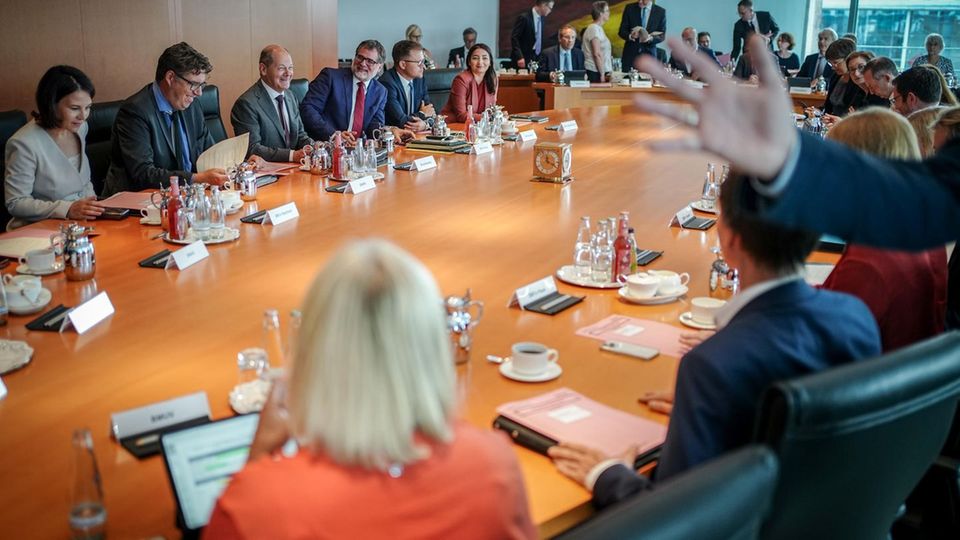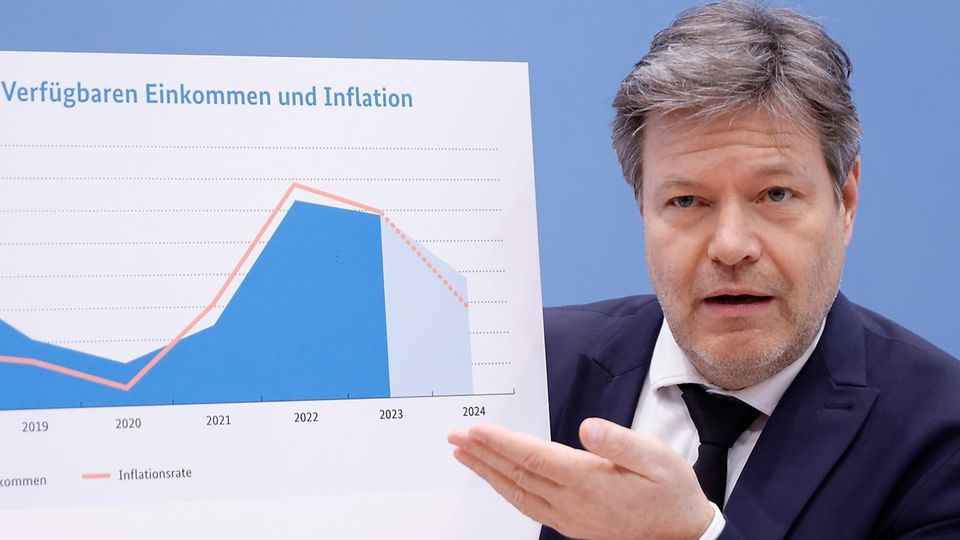Opinion
economic weakness
It’s not the traffic lights that are damaging the German economy – but rather its false ideologies
Foreign Minister Annalena Baerbock and Economics Minister Robert Habeck (both The Greens): “The supposed abandonment of Russian raw materials has caused German energy prices to explode.”
© Christian Spicker / Imago Images
The global economy is growing, but in Germany the economy is stagnating. This is also due to the idea of a “values-oriented foreign policy”.
While other large economic nations are growing faster again, the German economy is increasingly losing touch. According to the current estimate in the annual economic report, it is only expected to grow by 0.2 percent this year Federal government, which Vice Chancellor Robert Habeck just presented.
The traffic light government’s ongoing marital crisis certainly played its part: months of discussions about the supposedly right decisions have done the German economy a disservice. Our country is largely facing the same challenges as last year: high energy prices, a shortage of skilled workers, an enormous tax burden for companies and a lot of bureaucracy.
All of this reduces the attractiveness of Germany as a business location. As a result, companies are relocating parts of their production abroad. The household appliance manufacturer Miele is just one example of many. Around 2,000 jobs are at stake there. So far there has been no adequate response from the government to this plight. On the contrary: the domestic political ping-pong game of traffic lights, in which different interests collide, and great-sounding concepts such as the “Growth Opportunities Act”, the implementation of which depends on the Federal Council, are making the nation’s situation worse and better.
The mistake with value-oriented economic policy
So far, so bad. But the chaos only appears perfect when you look at foreign policy developments – and their consequences for the German economy. The war in Ukraine led to a rethinking of the federal government’s economic strategy: away from an interest-based economic policy towards a more value-oriented economic policy, which brought with it a number of interesting vocabulary: “system rivals”, “de-risking”, “values partners”, “sanctions packages”. “.
At its core, it was and is about strengthening economic relationships with partners who share our values - and reducing ties with authoritarian states. In the case of Russia, the new course was reflected in economic sanctions and the growing decoupling from Russian energy. In the case of China, the German government spent months working on a “China strategy” that would lead to more economic independence from the Middle Kingdom.
In fact, this change of course catapults Germany into economic isolation. The supposed abandonment of Russian raw materials has caused German energy prices to explode. India took advantage of the opportunity by buying larger and cheaper quantities of Russian oil and shipping some of it to Europe at a higher price. So we pay more money for the same oil of Russian origin just because it is now “labeled” as Indian.
Which countries do we still want to trade with in the future?
The shot backfired. And the government hasn’t done the economy any favors with its “China strategy.” Reducing economic risks is a good idea in and of itself. However, the approach alone is not enough if sufficient alternatives are not created.
If the German economy is to loosen ties with one of its most important trading partners, which countries will fill the resulting gaps? To date, the long-awaited Mercosur agreement has not been concluded with relevant Latin American countries, nor has a free trade agreement with India been concluded yet.
In addition, the greater concentration on “values partners” poses another risk: If politics change in the respective country, the values could also change. The USA is the best example of this. If Donald Trump wins the US elections this year, economic relations between Germany and the USA could also deteriorate. Doing business on the basis of shared values is a romantic idea and at the same time a dangerous undertaking for one’s own economy.
Prosperous economy: Despite everything, it’s not a pipe dream
And now? The good thing is: you can learn from mistakes. A prosperous German economy again does not have to be a pipe dream. Rather, it is in the hands of German politics to bring about this situation. In addition to the domestic policy challenges described above, the current government could readjust its foreign policy economic compass: less ideology and a stronger focus on common interests. It is true that Germany still maintains economic relations with “non-value partners”. But simply using or even concentrating on the word “value partner” unnecessarily limits the radius of potential German-foreign trading partnerships.
Incidentally, trade relationships based on common interests are not a contradiction to a value-oriented policy. In the best case, relationships based on this foundation at least give our values more visibility on a large stage. The more diverse our trading partners are, the more diverse and therefore more secure the German economy is. This immediately increases our chances of success in an international comparison and thus gives us a place at the table of global designers and decision-makers in the future.
A table where only those who are economically strong have a seat. A table worth sitting at.




